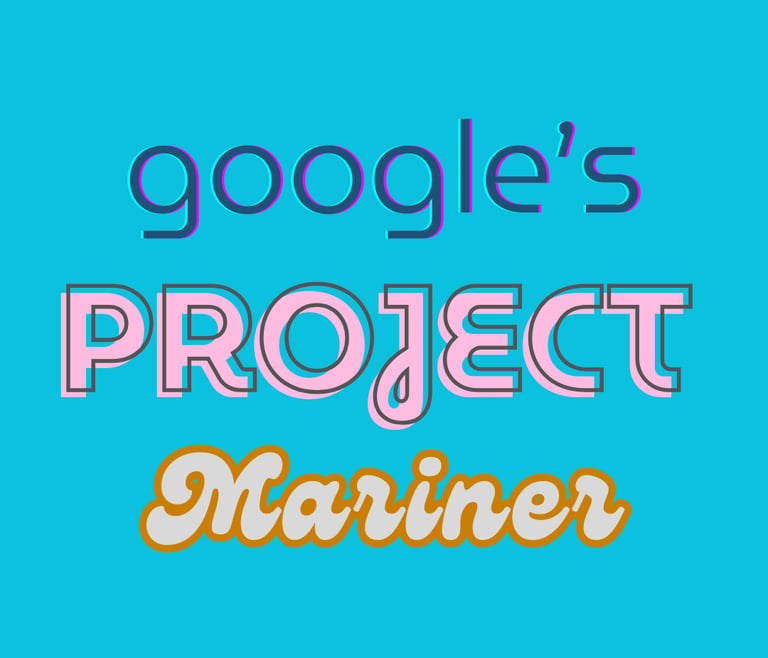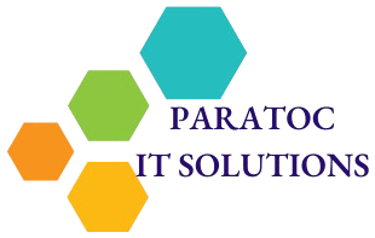Google’s Project Mariner
The Future of AI-Powered Browsing
Ankush K Sharma
9/20/20254 min read


Introduction
The internet is our gateway to everything—information, services, entertainment, and commerce. Yet, despite search engines, voice assistants, and AI chatbots, most online tasks still require manual effort. Whether booking a ticket, filling out a form, or comparing prices across multiple sites, we still rely on clicks, scrolling, and typing.
Enter Google’s Project Mariner, a groundbreaking step toward AI-powered browsing agents. Developed by Google DeepMind, Mariner represents a new era where AI doesn’t just answer queries—it performs tasks on the web on your behalf. Instead of navigating through endless pages, you can simply tell Mariner what you need, and it will execute the steps for you.
In this article, we’ll dive into what Project Mariner is, how it works, its features, benefits, challenges, and why it could redefine how we interact with the internet.
for more information on Latest Jobs click here
What is Project Mariner?
Project Mariner is an AI browsing agent developed by Google DeepMind. Unlike traditional assistants that only provide answers, Mariner can observe, plan, and act directly within a web browser.
It’s designed to:
Automate repetitive web tasks.
Navigate websites like a human user.
Fill forms, click buttons, and retrieve information.
Integrate with Google Gemini AI to add reasoning and contextual understanding.
For example, imagine saying:
“Book me the cheapest flight from Delhi to Bangalore next Friday.”
“Fill out this job application using my stored resume.”
“Compare three laptops and create a summary table with specifications and prices.”
Mariner will browse the web, interact with sites, and complete these tasks without requiring manual clicks.
How Does Project Mariner Work?
At its core, Mariner follows a simple but powerful loop: Observe → Plan → Act.
Observe
Mariner looks at the current browser window just like a human.
It processes text, buttons, images, and forms using multimodal AI.
Plan
It interprets your instruction.
Breaks the task into step-by-step actions (e.g., open site, enter text, click search).
Chooses the best path to complete the task.
Act
Performs clicks, scrolls, typing, and navigation.
Fills out forms or retrieves required data.
Provides updates or asks for clarification if needed.
This workflow allows Mariner to function as a true AI agent—not just a chatbot, but a digital assistant that uses the internet for you.
Key Features of Project Mariner
1. Multitasking Capabilities
Mariner can now handle up to 10 tasks simultaneously. For example, it could:
Book a hotel room.
Compare airfares.
Look for nearby car rentals.
—all at once, in separate virtual browser sessions.
2. “Teach and Repeat” Function
Users can demonstrate a task once, such as filling in a government form. Mariner remembers the workflow and repeats it later in similar contexts—saving hours of repetitive effort.
3. Integration with Google Gemini & Chrome
Mariner is powered by Gemini AI, giving it advanced reasoning and contextual understanding. In Chrome, it could soon allow tasks like:
Summarizing multiple open tabs.
Booking tickets directly from search.
Creating reports by browsing websites.
4. Transparency & User Control
Unlike invisible automation, Mariner’s actions are visible in real-time. You can:
Watch what it’s doing.
Pause or cancel tasks.
Take over control instantly.
5. Developer Access via Gemini API & Vertex AI
Google plans to expose Mariner’s capabilities to developers, enabling businesses to build custom agents for e-commerce, customer support, and enterprise workflows.
Benefits of Project Mariner
1. Saves Time & Effort
Complex tasks like booking multi-leg travel or filling job applications could be done in minutes.
2. Boosts Productivity
Instead of wasting time on routine tasks, users can focus on creative and strategic work.
3. Accessibility
People with disabilities can benefit immensely, as Mariner can navigate websites hands-free.
4. Business Use Cases
Enterprises could use Mariner to:
Automate employee onboarding.
Extract competitor data.
Manage repetitive administrative tasks.
5. Enhanced Learning & Research
Students and professionals could use it to gather data, summarize information, or compile structured reports faster.
Limitations & Challenges
While promising, Project Mariner has limitations:
Browser Restriction: Currently, tasks run in the active tab—blocking other browsing unless Mariner runs in the cloud.
Latency: Actions can feel slow, as cursor movements and clicks take time.
Security & Privacy: Risks exist if AI misclicks or accepts terms without user approval.
Website Compatibility: Some complex or security-heavy sites may block automated interaction.
Experimental Stage: Still prone to errors, misunderstandings, or needing user corrections.
Google is addressing these through user supervision, restricted permissions, and transparent control.
Availability of Project Mariner
Initially launched for Google AI Ultra plan users in the US.
Gradual rollout to more regions is expected, including India in upcoming phases.
Developers can experiment with Mariner’s functions via Gemini API and Vertex AI.
This phased release allows Google to refine Mariner before scaling globally.
Impact on AI Agents & the Future of Browsing
Project Mariner is part of a broader shift in AI: from passive assistants to agentic AI that can act on behalf of humans.
Long-Term Implications:
End of Manual Web Navigation? Instead of typing and clicking, you’ll simply give instructions.
Rise of “AI Browsing Companions”: Personal AI agents that handle your digital chores.
Business Transformation: Enterprises may automate entire workflows via AI agents.
New Internet Models: Websites may redesign experiences to accommodate AI agents as primary users.
Mariner signals that the future of browsing is task-based, not page-based.
Comparison with Other AI Agents
OpenAI
Offers ChatGPT with Browse & Actions.
Can access web pages but is less interactive with forms and buttons compared to Mariner.
Anthropic (Claude)
Strong reasoning, but limited to reading pages rather than acting in browsers.
Microsoft Copilot
Integrated into Edge & Windows. Handles browsing assistance but hasn’t reached Mariner’s action-taking depth.
Verdict: Mariner is unique for combining multimodal perception + real-time action execution in browsers.
FAQs on Project Mariner
Q1. What is Google’s Project Mariner?
A. An AI browsing agent that automates web tasks like booking, form-filling, and information retrieval.
Q2. How does Mariner differ from Google Assistant?
A. Unlike Google Assistant, Mariner can perform actual actions (clicks, navigation) inside a browser.
Q3. Is Project Mariner available in India?
A. Not yet fully. Rollouts are starting with the US, but India is expected soon as part of global expansion.
Q4. Can developers use Mariner?
A. Yes, through the Gemini API and Vertex AI, allowing integration into custom apps.
Q5. Is it safe to let AI browse on your behalf?
A. Google includes transparency, controls, and restrictions, but risks like misclicks and privacy concerns remain.
Q6. Will Mariner replace human browsing?
A. Not entirely—it will handle repetitive tasks, but humans will still be needed for creative, nuanced decisions.
Conclusion
Project Mariner is not just another AI tool—it’s a paradigm shift. By combining Gemini’s intelligence with browser interactivity, Mariner moves the web from manual navigation to automated task execution.
While challenges remain around speed, privacy, and adoption, the direction is clear: the future of browsing is AI-powered and agent-driven.
For users, it means less time clicking and more time doing. For businesses, it means scalable automation. And for society, it’s the next leap in how we interact with the digital world.
As Mariner expands worldwide—including in India—it could change the way billions of people use the internet daily.
Corporate Office
904, H Block, VVIP Addressees, Raj Nagar Extension, Ghaziabad, U.P.
Contact for support and query
info@paratoc.com
ankush@paratoc.co.in
© Paratoc Consulting Pvt Ltd 2025. All rights reserved.
www.paratoc.com
Contact for Business Development
+91 9105119191
Registered Office
B13-14, B.SPalace, Sector-4, Awas Vikas Colony, Sikandara, Agra. U.P.
